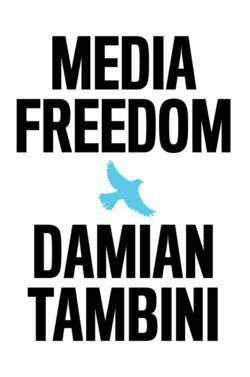Читать книгу Media Freedom - Damian Tambini - Страница 14
‘Noise Reduction’ or Censorship?
ОглавлениеFreedom of the media, like absolute freedom of speech, could result in a cacophony of shouting. It could also result in one giant voice that drowns out all the others. Communication inherently relies on rules, codes, turn-taking, grammars and other standards to prevent noise and misunderstanding, as well as on structural rules to shape and limit media power. Especially in an era of online information oligopolies, the absence of rules is an impossibility, if successful communication is the goal. Because of the need to maintain signal-to-noise ratios, regulation of speech is required either by public or by private actors. With no codes or structures to maintain diversity and pluralism, and given the economies and concentration tendencies of media markets, the media could become a single bloc of unchecked power over opinion formation. Because rules are necessary, there is no ‘prepolitical’ original position of free speech or free media, just varieties of rules, and differences of opinion regarding who should and who does shape communication, by what means and in whose interests.71
The paradigm case for communication regulation as noise reduction is wireless broadcasting. Because of the limited spectrum space, it is necessary for a central authority to manage the use of the spectrum, in order to prevent interference. As we see in chapter 3, there are endless debates on how to allocate spectrum fairly, but the presence of the spectrum-awarding authority itself is unquestioned, because the alternative would be a tragedy of the commons72 in which interference and piracy would lead to all voices being drowned out, apart perhaps from those able to access resources to cut interference. The fact that a central allocative authority is required in order to reduce potential noise and promote successful communication grates against the grain of First Amendment reasoning. This is why, for more than sixty years, regulators such as the FCC have been pressured to sell the spectrum in the open market: the assumption is that administrators will abuse the ranking73 and provide spectrum as part of a wider reciprocal ‘understanding’ between intermediaries of public opinion and those that benefit from opinion – for example in elections.
Similar arguments are applied to contemporary questions of social media regulation: if citizens need quality, true information on which to base judgements, but are distracted by a bewildering barrage of fake, misinformed, self-interested, hateful or irrelevant claims, to what extent should private intermediaries such as social and search companies, or public regulators, be involved in creating new forms of noise reduction and selection, when there is no spontaneous demand for these? Should social media be filtering out deliberate manipulation or promoting ‘trusted’ news? Are such interventions going to lead to self-serving definitions of what constitutes noise and what constitutes signal, either by the state or by the companies themselves, or by some other party such as the amorphous interests of big capital? If we accept the necessity of rules, the question is: whose rules, in whose interests?74
